Shipping to Japan: Services, Costs, and Customs
Inevitably, when you move to Japan, or have lived here for some time, you will want to either have someone ship something to you from … Read more
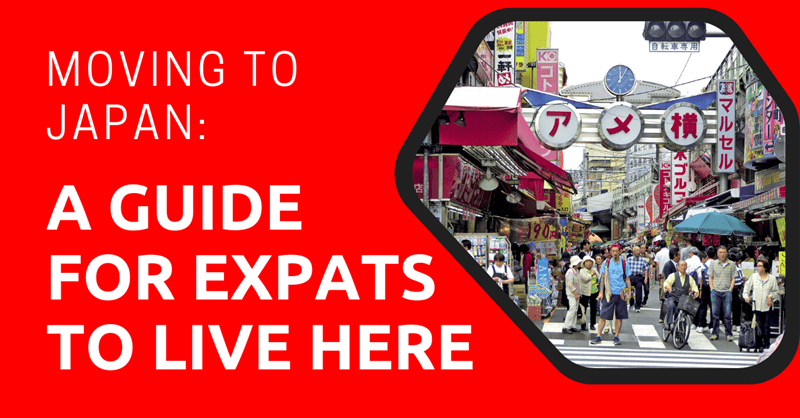
So, you have decided to move to Japan, a country with a completely different culture that is both unique and challenging.
The longer you live there, the better you will understand how the world works on this archipelago country of islands.
However, in order to help you reach Japan, we’ve created this comprehensive guide on everything you need to know about moving to the country. From finding work to finding a place to stay and everything in between, it’s all listed below.
Contents
Here is a list of the pros and cons of living in Japan. Although you have to decide for yourself, this is an objective summary to give you a better idea of what it’s like living here.
First, here are some of the pros of living in Japan.
With centuries of heritage, I couldn’t possibly get into the intricacies of Japanese culture in a short paragraph. That being said, as a expat, the number of opportunities you’ll have to experience different aspects of Japanese culture is endless.
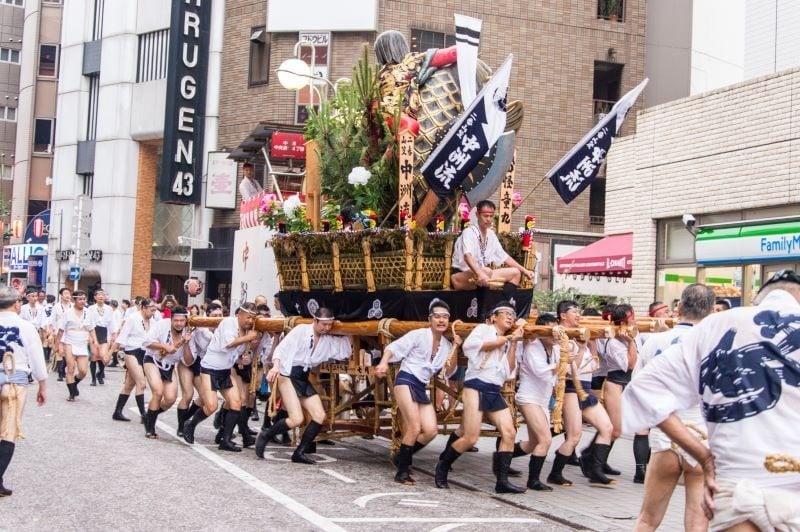
Each Japanese prefecture has its own famous food, characteristic dialect, rich history, geography, and appeal. Even after living here for 10 years, I haven’t gotten to experience the charm of many of these regions. Coming to appreciate various areas for their unique points is certainly a pro of living here.
Information on domestic travel is available anywhere on the Internet, and if your someone who likes new experiences, then Japan is really a treasure trove of customs, local festivals, and tradition.
Is living in Japan more affordable than Western countries? The answer is both yes and no. The reality of the economy in 2023 is an unpleasant situation for everyone in the world, and the Japanese Yen to United States Dollar ratio is equally distressing.
However, rent is fairly reasonable, and the cost of living in some ways is a bit more affordable.
You will read articles about how living here is much cheaper than the U.S., but that is if you come here with zero debt. Paying for bills, loans, or anything else you still have outstanding in your home country in yen is extremely inconvenient and costly.
Moreover, you quickly learn that your paycheck is taxed in small increments that stack up to a large sum, and you may be surprised by what you actually receive in your bank account each month.
Overall, though, considering the superior national healthcare, efficient and low-cost transportation, and relatively low rent, the cost of living in Japan is reasonable. Many websites offer a breakdown of costs, but take these with a grain of salt. They tend to be based on individual lifestyle choices rather than averages.
Later, I’ll go into this more deeply with a more explicit breakdown.
World renowned transportation efficiency is not an exaggeration. The transportation systems in Japan are amazingly punctual and connect all major cities and far-reaching countryside towns.
On top of this, it is beyond safe, people tend to have proper manners while traveling, and the trains and buses are well maintained. Even if you don’t have a car, as long as you have a bike to ride to the nearest train station, you can get where you need to go.
In more recent years, Uber services have become available in major cities. But in general, taxis services are everywhere. You should be warned though — taxis in Japan are expensive.
Don’t make the mistake of riding more than 20 minutes in a taxi, or you will pay upwards of JPY3,000 to JPY4,000 on average.
Last but not least, the awe inspiring bullet trains can get you almost anywhere in Japan at over 320 km/h (199 mph).
Amazon.co.jp, Rakuten, Yahoo Shopping, Costco Online, IKEA, and a plethora of other sites make living in Japan convenient in 2023. You can, for the most part, get the products that are familiar to you when you want them. Online shopping and worldwide shipping have changed the experience of living here as an expat.
I have to add a few personal recommendations though. One is The Meat Guy, a website that allows you to order steaks and meat from all over the world. Then there’s iHerb, which has vitamins, shampoos, and self-care products you can’t find in Japanese stores.
Japan 10 years ago and today are two different places. In fact, it’s becoming more and more convenient to buy products online every year.
Japan has one of the lowest crime rates in the world, and you can feel this every day you live here. I have dropped my wallet twice in 12 years. Not only was it waiting for me at the local police office, but it had all of my cash and cards inside on both occasions.
You can walk alone at night in most major cities without worrying about crime, you don’t see violence, and fighting in public practically nonexistent. For the most part, you don’t experience a sense of danger in Japanese society.
Most people look out for each other and watch over children to make sure they don’t get hurt — even if the child isn’t their own.
While no country is completely crime free, the lack of gun violence, school shootings, and violent public protests is more noticeable the longer you live in Japan. It’s a piece of mind you don’t get in some other countries.
Below are some of the cons of living in Japan.
Japan is not for everyone. Despite how much you prepare yourself, nothing can get you ready for culture shock.
Some common “shocks” for expats might include:
Japanese is without a doubt difficult to learn. Not understanding anything going on around you is a large con to moving here.
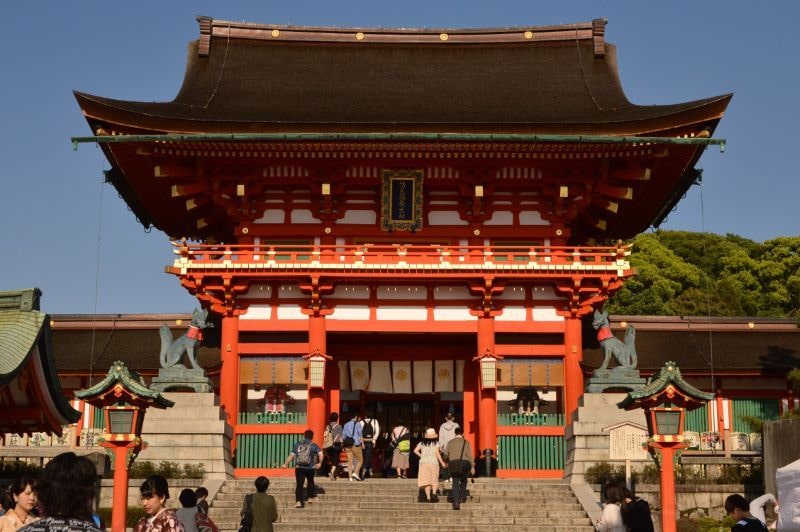
Do not listen to scam websites or any other article that tells you that you can become proficient in two months with a “special system” or by enrolling in a “fast-track course” or that you will be “speaking in no time.”
This is simply not true.
There is no fast way to learn Japanese. There are no shortcuts to having meaningful conversations in the language. It will take substantial effort on your part.
It’s a journey that you must be prepared to set out on or a journey that you’re not willing to take. There is no halfway studying the language.
Due to the unique vague and contextual nature of the language, it’s not a language you will absorb and understand by living here and listening to the people around you.
Studying language is based on what works or doesn’t work for you, and if you don’t want to study Japanese I recommend that you try to live in Tokyo or another major Japanese city.
More Japanese people speak English in major cities, and the signs have a better chance of being written in English to accommodate foreign residents. We’ll discuss this in greater detail, and I will provide some helpful options to get you on a study path toward intermediate fluency.
If you’re someone who cares about the world around you, specifically politics and world issues, the attitude of Japanese people might surprise you — specifically Japanese young people.
Young people in Japan are not that interested in politics, their own government, or taking part in the democratic process.
This could be refreshing for you if you’re coming from a politically charged society in a country that values the opinions of its citizens. Or it can be frustrating for you to be surrounded by a population that does not seem to care or actively vote.
Everyone has a different experience with this particular topic. However, living here long term and racism is bound to eventually get to you in some way. You are an outsider, and this makes you a target for a different kind of treatment than other people.
Maybe it will come in the form of being denied a service, a loan, a credit card, a reservation at a restaurant. Maybe it will be in the form of the differences in your work contract in comparison to that of a Japanese person.
While I have experienced both blatant racism (or xenophobia) and passive aggressive racism, it has not been a major issue for me. More often than not it’s due to different patterns of communication style and cultural misunderstandings.
Again, it’s on an individual basis, but I advise you to prepare having “thick skin” toward this kind of treatment.
Japan is affordable in some ways and ridiculously expensive in other ways you would not expect. I will give you some examples so you have a better frame of reference.
There are many Japan costs of living guides out there in the Internet, but keep in mind that you can reduce these costs on many websites by about 20 percent for the countryside or places outside of the city centers.
On average, your cost of living in Japan should be around JPY200,000 to JPY300,000 for a comfortable lifestyle. A comfortable lifestyle is certainly different for each person, and your family size is a large factor. Also, if you have someone to share the cost of accommodations with, it will be lower.
That said, I’ll give you a breakdown of my own personal living expenses.
I pay JPY80,000 per month for a fairly spacious (in terms of Japan) 2ldk (w/2 living spaces and one kitchen) apartment or small house in the Chugoku region of Japan.
For your electric, gas, Internet, and water in 2023, the cost is around JPY25,000 to JPY30,000. All prices have gone up significantly since 2022 due to economic conditions.
Grocery costs depend on the size of your family, but for a single person who doesn’t go out to eat more than once or twice a week, it could range from JPY50,000 to JPY60,000.

The price of food has skyrocketed in recent times due to supply chain shocks for imported goods.
If you like to eat fruit, you will pay almost triple or quadruple the price for most fruit in Japan. Grapes, strawberries, tomatoes, apples, etc. are dependent upon the season of the year, but fruit is extremely expensive in Japan.
This cost is usually reasonable and based on your spending patterns and what you need. You can buy most beauty essentials at drug stores, and quality clothes are cheap at places like Uniqlo or GU.
You can also buy makeup at any mall. Japan still has vibrant and clean malls where you can go shopping. You will probably spend an average of JPY15,000 or less a month on these types of items.
As I mentioned earlier, Japan has amazing transportation systems. You can charge one of the many transportation cards available in Japan with a set amount (often this will be reimbursed by your company if you work in Japan).
Many people use ICOCA cards or Suika cards, but some people still use paper tickets from the train station ticket machines. You should spend about JPY10,000 a month for public transportation, depending on your commute to and from work.
Taxis and buses are also an option, although most Japanese people own bikes that they use for commuting and everyday tasks.
Once you initially buy your household appliances and furniture, you’ll be set for a good amount of time, but getting set up is not cheap. You’ll need a refrigerator, as most apartments and houses don’t come with them. These vary in price but on average can run you JPY150,000 to JPY200,000 for a mid-size fridge.
You also have to think about heaters and air-conditioners. Many places have these included in some of the rooms, but they may be old or need a cleaning. A new air conditioner or heater for your room is expensive, ranging from JPY170,000 to JPY200,000.
Besides these large necessities, there is a long list of other items to consider: a microwave, a coffee maker, plates, dishes, cups, silverware, light bulbs, lamps, rugs, couches, a bed, window shades and curtains, and pillows.
Luckily, many of these items can be found at your local KOHNAN or Nitori, your one-stop shop for household goods.
Japan offers narrow career choices for expats, and these choices are directly linked to your work experience, qualifications, and language ability.
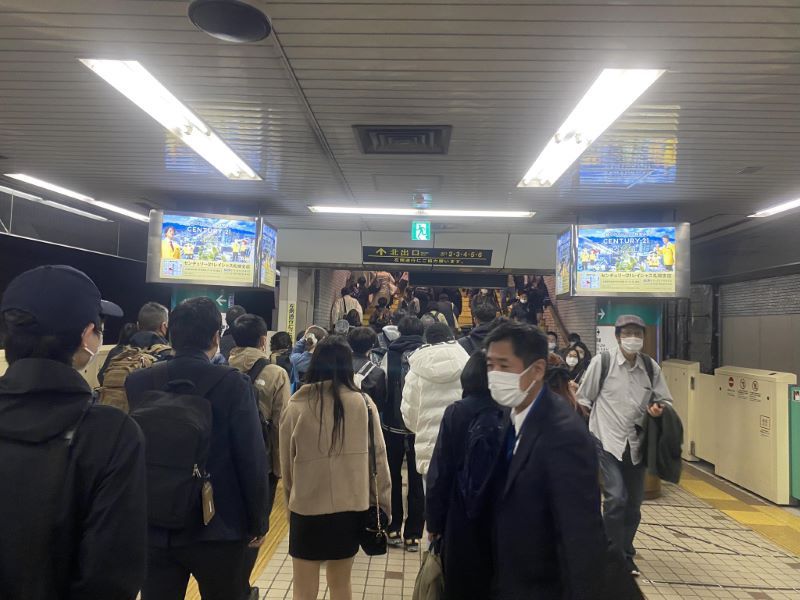
Some expats open businesses while some work for corporations.
Others choose job paths in teaching, while more tech savvy expats work in IT. This decision is ultimately up to you, and due to the fact that you cannot switch visas from a tourist visa to a work visa, you will most certainly get hired for your first job before you move to Japan.
A reality check is in order — you should understand that Japan has a strict seniority system in most industries.
You will often get a job in Japan only to realize that someone less qualified will be making substantially more money than you.
Moreover, the only reason they are making more money is there older age. You have to put in time at a Japanese company to earn more. And even if you do that, your pay will only increase marginally each year.
Keep in mind that while Linkedln is an option for recruitment, your best bet is to is to do your own research on what options are available.
Find out more: An Expat’s Guide to Finding Work in Japan
A visa is required for residency in Japan if you’re not a Japanese citizen.
If you can find a job in Japan, you will most likely be assisted by your new company with the required paperwork. But if not, here is some vital information about the application process.
If you’re a student, you’ll receive a student visa from the Japanese college or university you’re attending.
A Japan work visa is something that is non-negotiable if you’re going to work here. This indispensable document has three classifications:
The Japanese Ministry of Foreign Affairs has decided on the specific range of professions that are eligible for a work visa.
This list includes: artists (more recently full-time YouTubers/streamers), company employees, IT professionals, educators, journalists, and healthcare industry workers. The list is more expansive, but these are the main occupations it encompasses.
Most companies will help you apply for the actual visa (or apply for you), but you will need:
Upon your arrival in Japan, you’ll be presented with a landing permit, and this will allow you to enter the country on this particular visa.
You will want to apply for your work visa before you come to Japan. Please remember, if you’re a traveler or short-term guest, you cannot work in Japan. It’s considered illegal and punishable by law.
In addition to a work visa, Japan also has a family visa or a spouse visa if your family or a spouse stay here.
If you have been staying in Japan for more than 10 years in a row (and pay tax every year), then you can get a permanent resident card.
With seemingly endless possibilities, choosing where to live in Japan can be a real challenge.
The obvious city choices that may stand out to you might be bustling places like Kobe, Tokyo, or Osaka. These three cities have the most job opportunities for expats in Japan. But the cost of living is also the among the highest.
They are the top choices for expats in Japan, especially for those who just move here during the first few years.
In addition to these places, I will briefly introduce a few other prefectures for your consideration.
Situated in the northernmost part of Japan, Hokkaido, with its capital city, Sapporo, is the nation’s largest prefecture, renowned for its heavy snowfall. This region is also the ancestral home to the Ainu, Japan’s indigenous community.
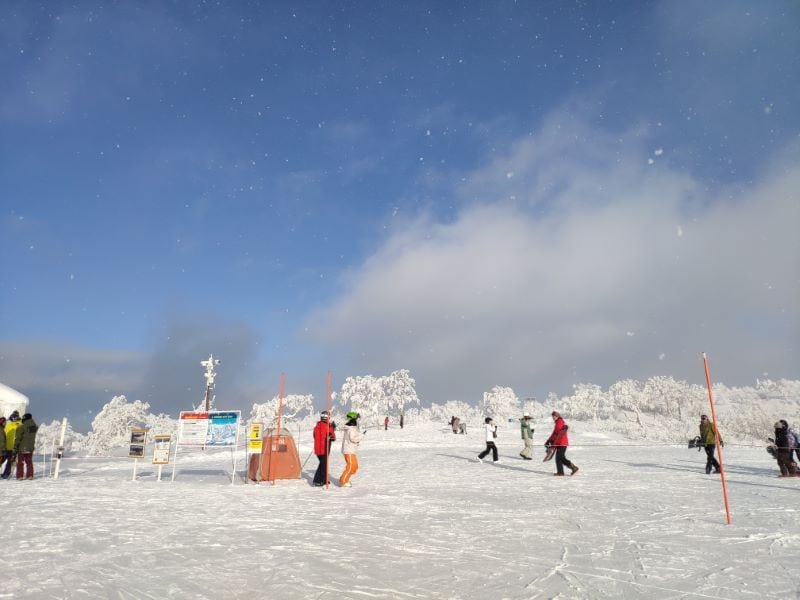
Hokkaido, or the snow country, attracts tourists every year who come for the natural beauty and amazing food. It’s famous for its dairy products thanks to its abundant amount of cattle farms and has a prevalent horse-riding culture.
The roads here are wider than anywhere else in Japan, and the local cuisine, particularly the seafood, is a culinary delight famous throughout the country. If you like snow, snowboarding, and the outdoors, then this could definitely be the destination for you.
Okinawa is in the southern region of Japan, and it’s a tropical haven with tons of beaches. With its subtropical climate, Okinawa is a year-round destination for both tourists and Japanese domestic travelers.
However, Okinawa is known for housing a significant number of American military bases, resulting from the U.S. presence since World War II. These bases contribute to the local economy, despite the continuous debate over their impact on local Japanese life.
This situation is not for everyone, and it may be a turn off living in this region. Additionally, people compare living in Okinawa to a different country, because the local dialects can be very different than standard Japanese.
Kyoto, situated in the Kansai region, is widely recognized as Japan’s cultural epicenter. Its rich cultural heritage is illustrated well by its abundance of historical sites. Kiyomizu-dera Temple and the Fushimi Inari Shrine, along with charming age-old streets like Gion and Pontocho, epitomize Kyoto’s appeal.
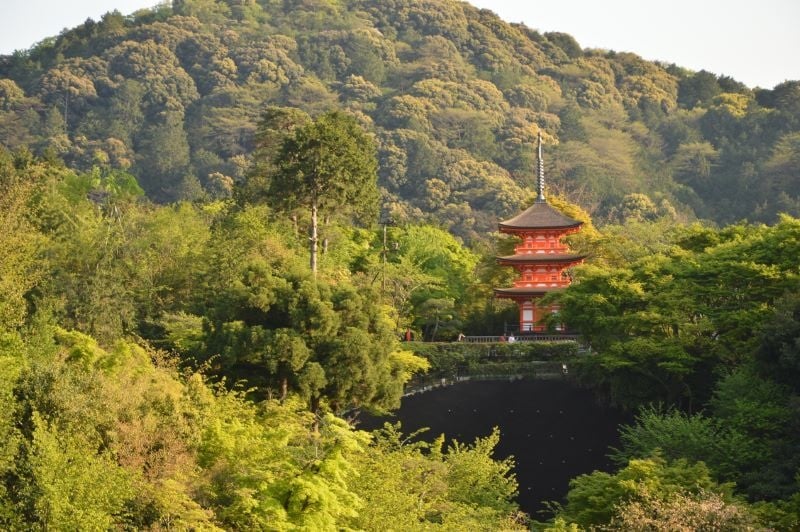
There are plenty of jobs for expats in Kyoto, but as you can imagine, the sheer number of tourists make living in Kyoto a bit different than other places in Japan.
Located in the southern part of the Chubu region along the Pacific Ocean, Shizuoka is a beacon of cultural, historical, and natural significance. The prefecture’s capital, Shizuoka City, serves as the hub of the region. While Hamamatsu City, the area’s most populous city, is celebrated for its gyoza dumplings.
The prefecture is most famous for Mount Fuji, Japan’s tallest mountain peak, which straddles the borders between Yamanashi and Shizuoka prefectures. It’s a beautiful area to live in if you enjoy the slower countryside lifestyle.
The Shikoku region, particularly the Tokushima Prefecture, is a wonderful place to live. It’s renowned for the Awa Odori Dance Festival, which is held every summer during the Obon Lantern Festival. Apart from the festival, the prefecture boasts several other attractions.
You’ll find the iconic Kazura Bridge, which is constructed from over five tons of intertwined vines; Mt. Bizan, a symbol of Tokushima City, offering panoramic views of the Awaji Island and Kii Peninsula on clear days; and small waterways through the city where boats offer sightseeing tours.
In general, Shikoku is a much cheaper place to live because it’s separated from the main island of Japan.
People moving to Japan with the intent to stay long term always wonder what they should bring, and more importantly how to get it here. With the exception of a few things I mention below, you can get everything you need in Japan.
There is no need to over-think this, and a minimalist approach to packing may be the best route. The items that you may consider packing that you won’t find in Japan, you will have to research yourself.
Go to Amazon.jp and see if your favorite soap, deodorant, nail polish, shirt brand, etc. is available in Japan, or if it can be shipped here. You will save yourself luggage space by restocking those items when you are settled in.
Just in case you do want to bring furniture and large items, here are some international shipping companies.
Things you won’t always find in Japan: prescription medications (please follow this guide), dietary items, your favorite snacks, specific styles of sneakers, Western deodorant brands, liquid flavored coffee creamer, turkey, tasty bacon, hummus, an so on.
Honestly, the list goes on and on. But there are many things you can live without or find a Japanese equivalent.
Renting an apartment in Japan is the most popular option for expats. It’s more convenient and requires less time and resources.
Normally, accommodations in Japan come with the Internet. But sometimes, you may need to set up Internet service yourself.
Below are some of the different types of accommodation available in Japan.
Studio Apartments (1DK – 1 Dining Room and Kitchen)
These are typically small, one-room apartments, perfect for single occupants. They have a combined living area that doubles as a sleeping space, a compact kitchen, and one bathroom with a shower/tub.
One-Bedroom Apartments (1LDK – Living Room, Dining/Kitchen, and One Bedroom)
These apartments have one separate bedroom, one living room, a small kitchen, and one bathroom.
Mansions (A Large Apartment Complex with Many Floors)
These high-rise apartment buildings often located everywhere in Japan. One thing to look for is whether the apartment you choose has “RC” walls (these are made of concrete) or thinner walls.
Traditional Japanese Houses
Often, older houses that are more than 30 years old but have been renovated are available to rent all over Japan.
You want to consider both heating and cooling expenses due to the fact that they are often made of wood and can get very hot or cold during the seasons.
In addition, if you live in the Northern Japan where it snows heavily during the winter, you need to clear snow from your property and roof.
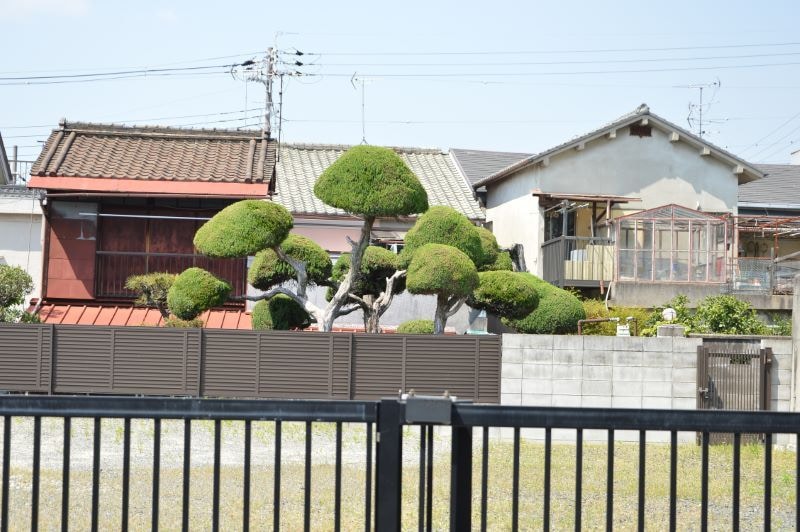
Using Real Estate Agents
Finding a real estate agent is not difficult. You can walk into any agency in person or find one online.
However, please keep in mind that some places won’t rent to you because you are not Japanese. This is a real phenomenon, and it’s frustrating for many expats who live in Japan.
Read our guide to finding an apartment for rent in Japan to find out more information.
While we have a comprehensive article on how to open a bank (link below), here is a brief explanation and some useful links for getting set up.
Some popular banks that expats choose are Mizuho Bank, Mitsubishi UFJ Financial Group (MUFG), Sumitomo Mitsui Financial Group (SMFG), Shinsei Bank, SBI Sumishin Net Bank, Sony Bank, and my favorite — the Japanese Post Bank.
Normally, the bank you open is going to be the one recommended by your university or company.
After you open a bank account, you can open an online bank account.
Japan is becoming a cashless society and contactless payment is now widely used throughout the country.
I will also link some articles about getting a Japanese credit card, and sending money both to and from Japan — something you will absolutely need to do when you move here.
Just so you know, getting a credit card in Japan as an expat can be challenging.
You first have to establish yourself, typically living and working here for more than a year. In my case, I worked here two years before applying to my first JCB credit card.
It is one of the easiest to get if you already have a Japanese Post Bank account. The necessary documents you will need when you apply are:
Credit card companies will also require proof of stable employment, which can easily be proven using a bank statement showing direct deposits from your employer.
Unlike some countries, Japanese credit cards also have multiple payment choices when you buy something. You can choose the payment system that you want to use on the day that you make the purchase (often at the register).
One method is called a one-time charge (iikatsu barai), which means you pay the amount you charged back in full with zero interest the next month. Or you can choose to break the purchase into multiple payments over many months (similar to a revolving credit system).
If you plan to use your foreign credit card in Japan, it will work just fine.
Visa, MasterCard, and JCB are typically accepted everywhere with the exception of small bars and cash-only establishments that still exist.
American Express is seldom accepted at stores in Japan due to its high fees.
Before arriving in Japan, you’re going to want to consider your phone situation.
Make sure your phone is unlocked so you can use a Japanese SIM card, which is easily obtainable at the airport.
The cost of a pre-paid SIM card ranges from JPY1,000 to JPY10,000. Some people even prefer to buy a worldwide SIM and put it in their phone before they land.
After you have a SIM card, download two applications to your phone immediately. The first one is Line. It’s a messaging app like WhatsApp that is used widely in Japan. The second one is Pay Pay, a digital wallet app used in Japan.
Both of these apps are integral parts of everyday life in Japan.
Not only is Japanese healthcare affordable, but it’s easy to use at any hospital or clinic in the country. And you will get national healthcare through your workplace.
What is unique about Japan is that your job will require mandatory yearly checkups from each employee at a company.
These are comprehensive tests (blood work, eye tests, urine samples, etc.). Depending on where you work, large vans with medical test equipment will come to your workplace — meaning you can do your yearly checkup on site.
Find out more:
Driving in Japan might be something you want to do.
As I previously said, the transportation system is more than sufficient, but the Japanese countryside may require driving for a convenient lifestyle.
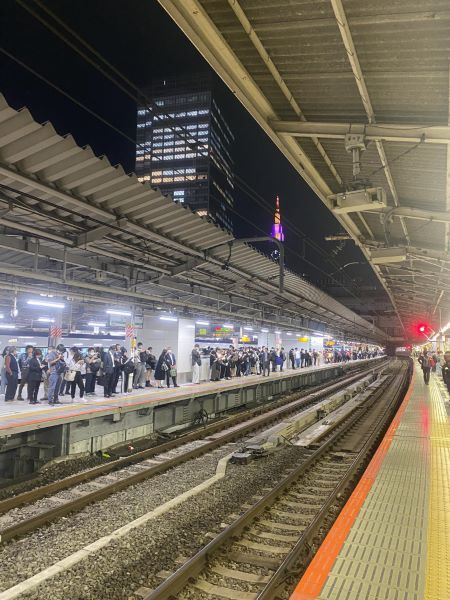
First disclaimer, do not attempt to ship your own car here. You can buy a used car that will suit your needs for a fraction of the price.
Depending on what country you’re from, you will also find that transferring your license to a Japanese license is not difficult.
Americans seem to find it the hardest because they are required to take a driving test, but other countries also experience similar difficulties.
You can only bring your dogs and cats into Japan. Additionally, your pet must be microchipped for identification. Shots and vaccines are also required.
Other provisions also exist, with specific waiting periods based on the situation. You will also have to think about what residences allow you to have a pet.
To learn more about the process, check out this resource: official website for pet importation.
If you search “the Japanese language” on the Internet, you’ll find so many resources it might make your head spin. There are three alphabets, countless Kanji characters, and grammar points that are tiered according to politeness levels and formality.
However, understand that you will need to know Japanese during your life in Japan. Many people say that that learning a language is a personal journey. I completely agree that every one of us has our own way of studying and learning. You can base your study path on your personality traits, interests, or lifestyle, or something about Japanese culture that really captivates you.
But if you live in Japan long term, not learning Japanese will put you into a bubble of English. You won’t be able to communicate with your co-workers, you won’t be able to accomplish everyday tasks, and you will be constantly in the dark about what is going on around you at all times in almost every setting.
I encourage you to put in the time and make your best attempt to learn Japanese for your personal survival and happiness. I have listed some invaluable resources below to help you along the way.
Google Translate is something I use almost every day. It has a great photo function that allows you to take a picture or video on Japanese writing, and it translates it into English.
Additionally, for a Japanese-to-English dictionary, although there are many options. I believe that Japanese in the Apple Store is by far the best one.
To begin learning Japanese, I recommend:
Find out more:
You have read all of this information, and I hope it has given you some guidance in your move to Japan.
I am sure you have a lot to process, but as the Japanese say, “Ganbatte!” This means good luck and do your absolute best.
Inevitably, when you move to Japan, or have lived here for some time, you will want to either have someone ship something to you from … Read more
Using an ATM in Japan isn’t a particularly challenging task, but there are some differences compared to ATMs you might find in your home country. … Read more
While the transportation system in Japan is good, you may want to drive a car in Japan. As an expat, your international driving permit (IDP) … Read more
I am a father of two. All of my children were born in Japan. It’s an amazing experience. While navigating Japan’s healthcare system seems to … Read more
Depending on the region of Japan in which you are living, you may want to buy a car for yourself. In metropolitan areas, this isn’t … Read more
When you live in Japan, sooner or later you may want to enter a relationship. The dating scene in Japan can be confusing for both … Read more
The answer to this question depends on who you ask and is specific to your personal situation, but I can say with utmost confidence that … Read more
It is hard to imagine living for an extended period in time in a place where you can’t speak to the people around you, read … Read more
Living and earning an income in Japan comes with the expected duty of having to pay taxes. Like all Japanese citizens (with the exclusion of … Read more
There are many drug stores in Japan that you might not recognize as drug stores due to the products they sell, ranging from cosmetic items … Read more
Japan’s hospital system is a bit of a unique experience; the specialists available can vary depending on the area you live in, and it differs … Read more
Unlike many countries in the world, Japan makes this easily attainable for everyone living there – regardless of their citizenship or financial situation. In this … Read more